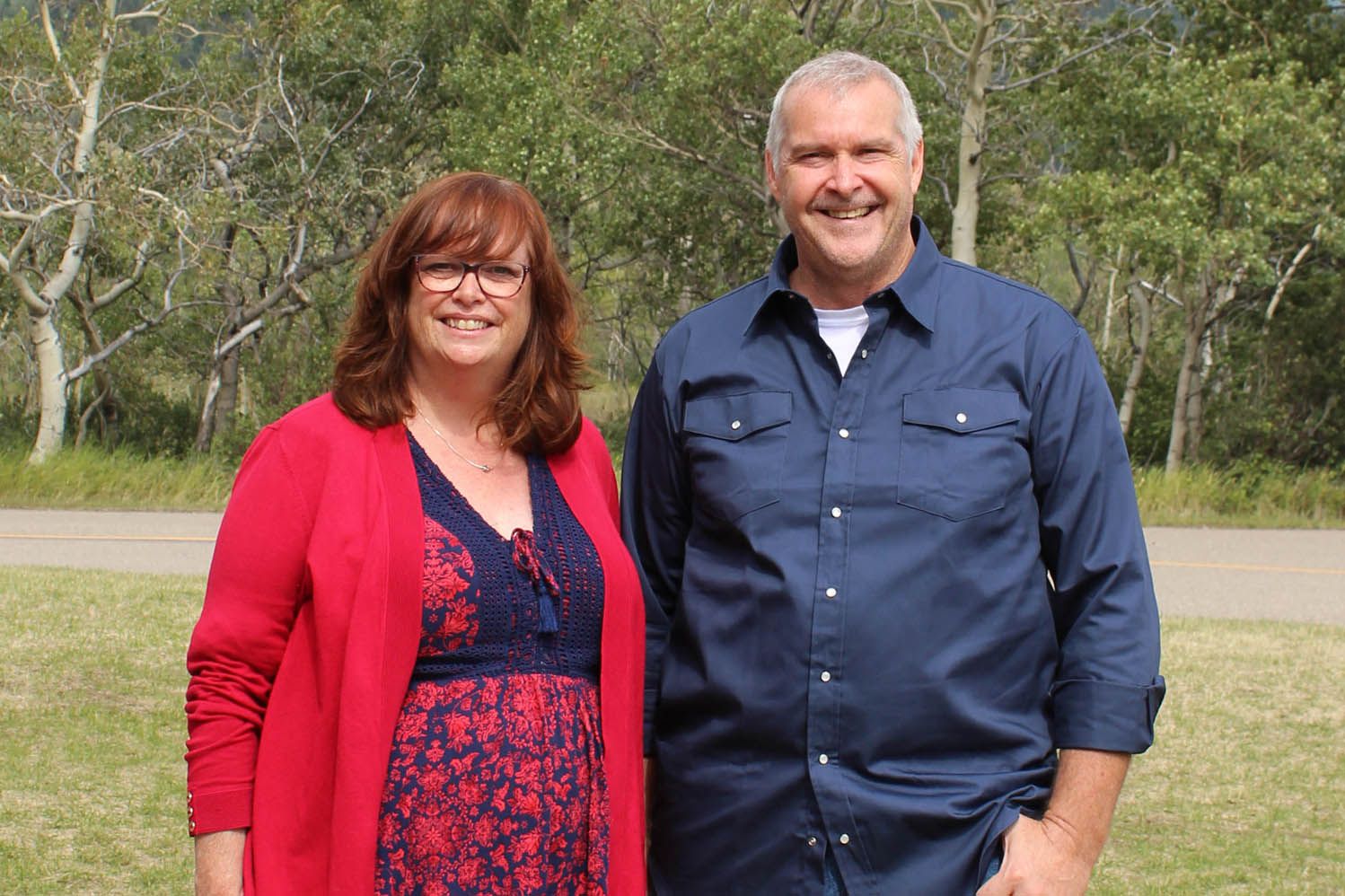“I remember trying to teach my students about biomes and them looking at me like I had an extra head,” says Dr. Sharon Pelech of her first teaching job. “Then I took them for a walk, and their understanding of the land and the place was way above what I could ever imagine.” Pelech realized that if she linked the students’ familiar environment with the concepts she was trying to teach, she would have greater success. “It seemed obvious,” she says. “Why wouldn’t I have started with that?”
Now a University of Lethbridge Faculty of Education associate professor and interim Assistant Dean of Field Experiences, Pelech encourages student teachers and educators to practice place-conscious pedagogy, tapping into local resources to fulfill curriculum requirements.
Most of the topics in any subject can be taught starting with the sense of place."

After preliminary research revealed that place-conscious pedagogy results in improved academic performance, stronger community connections, heightened environmental awareness, increased student agency, and enhanced teacher efficacy and identity, Pelech and research partner Dr. Darron Kelly of Memorial University were awarded a 4-year SSHRC grant to investigate its impact on students, teachers and communities in Alberta, Newfoundland, and Labrador. Part of the grant will fund a study of educators in Alberta’s Crowsnest Pass who are transitioning to place-conscious teaching. “About 14 have agreed to be interviewed throughout the process,” says Pelech. “It’s a nice longitudinal study, because most of the data shows the shiny end product but not the trials teachers go through as they’re changing their pedagogy.”
With her own classes, Pelech models experience, taking student teachers on walks and asking them to observe their surroundings.
I don’t teach anything; I allow the space to speak to them,” she says. They discuss what they noticed and how it could tie in with curriculum. “We pull out the program of studies and see where the connections are.”
Pelech and Kelly are compiling case studies of place-conscious pedagogy into a website for use as a teacher resource. “Teachers are doing good work already, but a lot of it is in isolated pockets,” says Pelech. “Creating a space where they can find multiple examples will encourage them to try it.”
In addition to publishing journal articles, they plan to write a book for undergraduate and graduate students, in the hopes of helping other educators and student teachers discover what place-conscious pedagogy could look like.
Writer: Elizabeth McLachlan
Photographer: Rob Olson
LINKS:
• Anyone interested in participating in the SSHRC study or the website can contact Dr. Sharon Pelech at: sharon.pelech@uleth.ca
• Kelly, D. & Pelech, S. (2019). A critical conceptualization of place-conscious pedagogy. European Journal of Curriculum Studies 5(1), 732-741
http://pages.ie.uminho.pt/ejcs/index.php/ejcs/article/view/187
• Kelly, D. & Pelech, S. (2019). From port and prairie: Exploring the impact of place-conscious pedagogy on student agency. European Journal of Curriculum Studies 5(2), 874-885.
http://pages.ie.uminho.pt/ejcs/index.php/ejcs/article/view/202
• Kelly, D., and Pelech, S., (2020). Canadian contexts for exploring transformative student agency through place-conscious pedagogy. Education in the North, 27(1) pp. 110-124.
https://doi.org/10.26203/3pbv-8992
_________________________________________________________
Related story links to Faculty of Education Graduate Studies and Research:
• Dr. Lance Grigg: Teaching, Research, Authentic Engagement, and Chess for Life
• The Creativity of Curriculum and 36 Years with the Faculty of Education: Dr. Richard Butt
• A Year of Grace and Patience: Taking on Covid-19 as a First-time Principal: Matthew Bekkering (BSc '06, BEd '08, MEd '17)
• Coping with COVID-19: Harnessing our Natural Stress Response
• Coping with COVID-19: Loneliness
• How Students Can Get Screen Time Break During COVID-19: Experts
• The Intersectionality of Faith, Mental Health and Wellness for Racialized Populations During the Pandemic
• Bridging Neuroscience and Education: Riley Kostek (BSc’09/BEd’11)
• Teaching and Assessing for Life Beyond the Classroom: Dr. David Slomp
• Five questions with Shining Graduate Rita Lal (BSc/BEd '01, MEd '20)
• Teaching Multiple Literacies in Canadian Classrooms: Sarah Gagnon (BSc/BEd’11, MEd candidate)
• Wellness is About Writing: Teri Hartman (BA/BEd '02, current MEd student)
• Leadership in Education: The Power of Generative Dialogue
• A Generative Approach to Leadership for All Educators
_________________________________________________________
For more information please contact:
Darcy Tamayose
Communications • Dean's Office • Faculty of Education
University of Lethbridge
darcy.tamayose@uleth.ca
Learn more about the Faculty of Education:
Legacy Magazine (2008-2019)
Portfolio of online stories (2020-present)
Twitter: @ULethbridgeEdu | Faculty of Education Grad Studies: @ULethEduGrad
Website: uleth.ca/education
BecomeaTeacher.ca | BecomeaTeacherAssociate.ca | EdGradStudies.ca